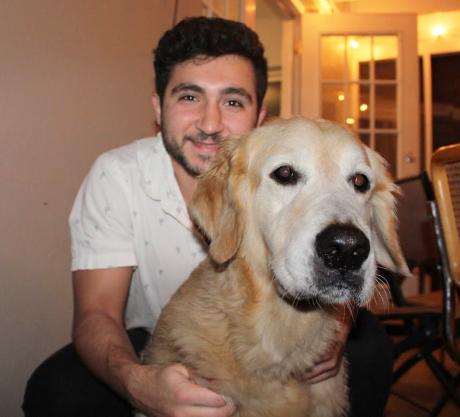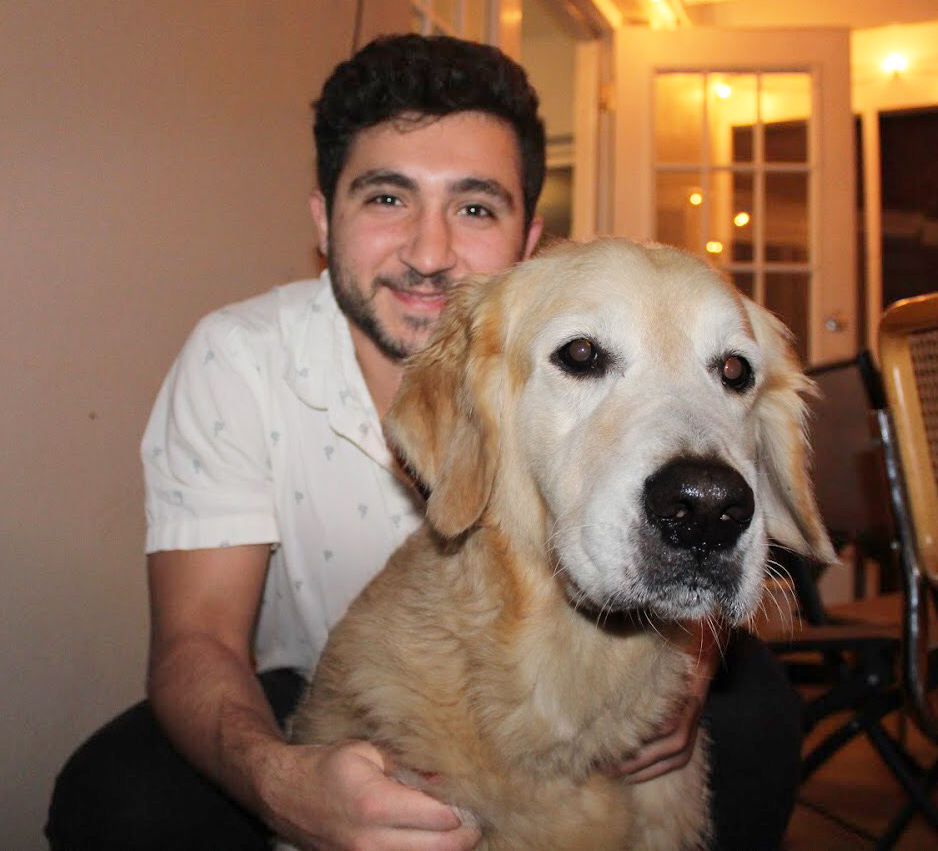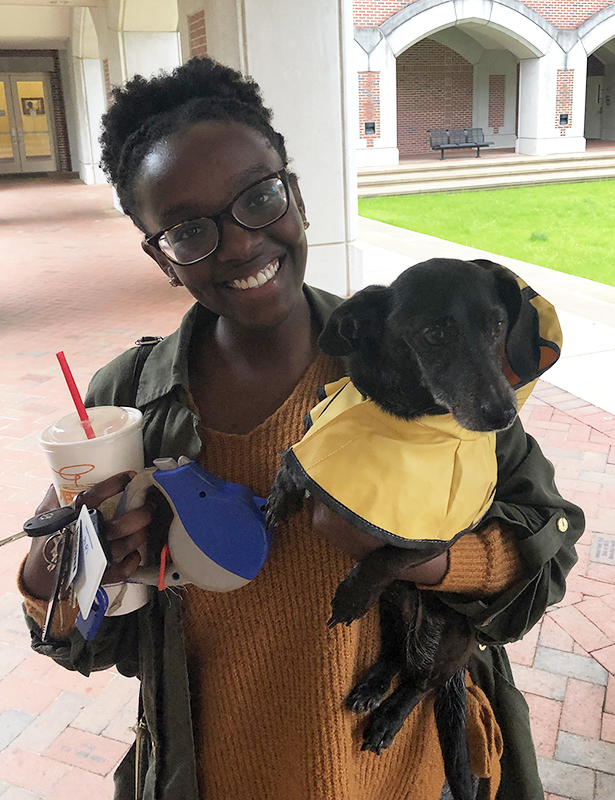Students and their four-legged stress relievers


By Devyn Wallin
Akram Farran lives the daily demands of being a medical student. The days are long, and there are plenty of times he just needs to see a friendly face when he walks through the door at home.
He always gets it from his 7-year-old golden retriever, Rusko (pictured right).
“Every day I come home, if I’m stressed or not, he’s ready to play and that helps a lot,” said Farran, who’s starting his second year at the College of Medicine. “He’s a bit of a needy boy, barking whenever I give anyone other than him too much attention.”
Earlier this year, College of Medicine students received an up-close look at the health benefits of dogs, courtesy of Tallahassee Memorial Hospital. The hospital showed off its animal therapy program to students as they crossed through the atrium and courtyard.
“We want to expose future doctors to the benefits animal therapy can have as well as remind them the role an animal can play in their life,” said Savannah Lefors, coordinator of the animal therapy program at TMH.

“Hundreds of clinical trials have shown that petting an animal reduces the blood pressure and heart rate, thus reducing stress and anxiety,” TMH’s Animal Therapy Services and Programs states on its website. “It also releases oxytocin and endorphins, which help patients feel better and aid in their healing. Therapy animals provide motivation and even pain management for patients experiencing difficulty in their rehabilitation.”
Shalom Chege (pictured left) is another second-year student who leans on her dog for support. Scooter, an 11-year-old dachshund sometimes sporting a yellow raincoat and black bow tie, has even provided an emotional outlet for students who gather with Chege for study sessions.
“We’ll all be studying together and as soon as we reach a topic we don’t like, we take a break to go see Scooter,” Chege said. She then added with a laugh: “I should start charging people. ‘You want to come over to pet the dog? It’ll be $5!’”
Farran can relate. Rusko has been with him throughout his undergraduate work. He can’t imagine a scenario where he’ complete his medical degree without Rusko, who likes to snack on cucumbers.
“It would be pretty empty,” Farran says of college life without Rusko. “He does fill a big gap in my life.”
Knowing the benefit their dogs have had on their wellbeing, both students say they’d consider one day incorporating animal therapy into their practices.
As Chege put it, “I mean, how could a dog not make your day better, let alone a patient’s day? It’s definitely something I would be open to.”

